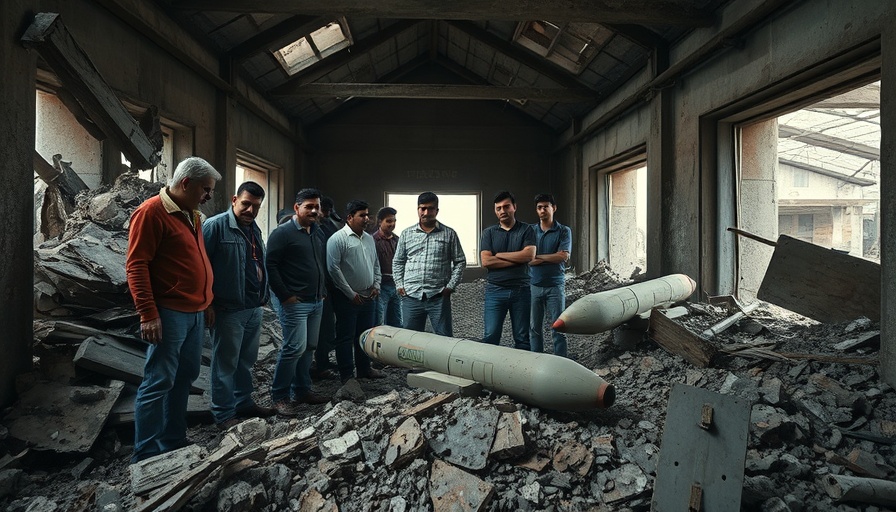
Escalating Conflict: Understanding India and Pakistan's Nuclear Standoff
In a concerning escalation of conflict, India has fired missiles into Pakistan's controlled territory, resulting in the death of a child and injuries to two others. Pakistani officials stated that these airstrikes targeted five locations, purportedly used by militants. The backdrop for this aggression stems from heightened tensions following a recent massacre of tourists in Indian-administered Kashmir, which India blames on Pakistan, a charge Islamabad firmly denies.
The Immediate Aftermath: Retaliation and International Responses
Following the missile attacks, Pakistan’s Prime Minister Shehbaz Sharif condemned India's actions as "cowardly" and stated that Pakistan retains the right to respond robustly. The swift response from Pakistan included claims that their air force downed two Indian jets, although specific details remain sparse.
Historical Context: A Long-Standing Rivalry
The relationship between India and Pakistan has been fraught with tension since their independence in 1947, with multiple wars and ongoing disputes, particularly over the region of Kashmir, which both nations claim. As nuclear powers, the stakes have risen dramatically, with both countries engaged in a delicate balance of power. The two nations’ historical enmity is fueled by political, military, and cultural disputes that have often turned humanitarian situations into conflicts.
The Role of Media in Shaping Perceptions
In times of crisis, the media plays a crucial role in shaping public perception and international responses. Coverage of the conflict emphasizes nationalism, often painting the opposing side in a negative light. Reports from both nations vary significantly, with Indian media outlets framing the missile strikes as necessary defense moves against terrorism versus Pakistan’s portrayal of their country as unjustly attacked.
Future Predictions: Risks of Escalation
As tensions continue to rise, the potential for escalation remains a critical concern. Analysts warn that miscalculations or misunderstanding between military forces could lead to further violence, threatening peace not just in South Asia, but worldwide.
International Community's Role: Call for Peace
The international community has often been called upon to intervene in Indo-Pak conflicts. Diplomacy and dialogue are not only crucial for regional stability but can also help alleviate the civilian suffering that results from military engagements.
Conclusion: An Ongoing Struggle for Peace and Stability
The current situation between India and Pakistan highlights the complex interplay of historical grievances, national security, and international diplomacy. Both nations stand at a precipice where decisions made today could affect generations to come. Thus, understanding the dynamics at play is essential for anyone interested in global peace and security.
 Add Row
Add Row  Add
Add 




 Add Row
Add Row  Add
Add 

Write A Comment